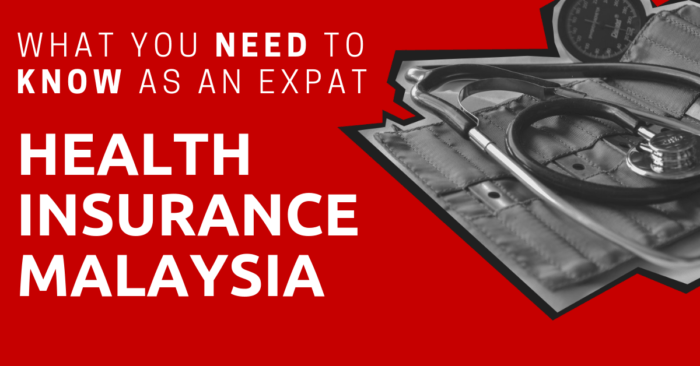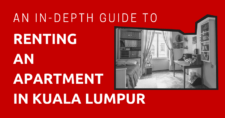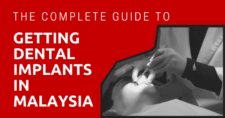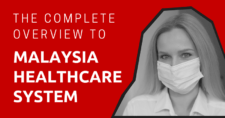
When people move to Malaysia, health insurance isn’t usually the first thing on their minds since Malaysia’s healthcare system is top-notch, with doctors and most healthcare staff being great with English.
Well, having health insurance gives you peace of mind for both yourself and your loved ones when it comes to healthcare needs. But that isn’t the only reason.
In this article, we are going to tell you everything you need to know about health insurance in Malaysia, including should you get it, options available to you, cost, and how to choose the right plan.
If you don’t want to read this entire guide but want to know which insurance plan to get, check out our quick comparison of expat health insurance.
Disclaimer: This article may include links to products or services offered by ExpatDen’s partners, which give us commissions when you click on them. Although this may influence how they appear in the text, we only recommend solutions that we would use in your situation. Read more in our Advertising Disclosure.
Contents
- Do I Need Health Insurance in Malaysia?
- Can I Use Insurance from Back Home?
- Types of Health Insurance
- Malaysian Social Security
- Foreign Workers Hospitalization and Surgical Scheme (FWHS)
- Expat Insurance
- Local Insurance
- Takaful Insurance
- Group Insurance
- Travel Insurance
- Best Insurance for Expats in Malaysia
- Insurance Brokers
- Comparison Sites
- Frequently Asked Questions
- Insurance Guide in Other Countries
- Now, on to You
- Sources Cited
Do I Need Health Insurance in Malaysia?
In general, healthcare in Malaysia is cheap enough that you can pay out of pocket and forgo health insurance in most cases.
While it’s chaper than than the costs of similar treatments in the West, treatment for foreigners costs more than what Malaysian nationals would pay.
In addition, medical care can get expensive.
Many years ago, a friend living in a small city in Sarawak contracted Leptospirosis. It wasn’t diagnosed until he was in the later stages of infection. And by that time, he was in critical condition.
Doctors flew him to Mount Elizabeth, a hospital in Singapore. They had better facilities and medicine to help him with the treatment he needed.
The emergency airlift out of Malaysia and the cost of getting treated in Singapore could’ve caused a dent in his bank account if he was uninsured. Fortunately, his insurance company covered all his bills.
This means a good health insurance plan can save you from a lot of hefty medical care bills.
In Malaysia, you can pay yourself for basic treatments. But for serious treatments, having insurance helps cover the costs.
Can I Use Insurance from Back Home?
Most of my expat friends who moved to Malaysia are already covered by an insurance plan from their home country.
A friend from Australia and her husband have a health coverage plan, which includes dental and medical evacuation as part of their insurance.
Unfortunately, though, their policy is quite expensive and only covers medical costs “while on authorized business travel and any associated holiday travel.”
My friend and her husband are 55 and 57 years old, respectively. And they won’t be covered after the age of 70. If they retire in Malaysia, they have to find another insurance plan.
Another friend has health insurance from Germany. It was cheap but only valid for a few years after he moved out of Germany.
You can get health insurance from your home country if you’re under 50 years old. But some companies may charge more to cover you abroad.
Types of Health Insurance
Common ways to get insured in Malaysia are through:
- Malaysia Social Security
- Foreign Workers Hospitalization and Surgical Scheme
- International (Expat) insurance
- Local insurance
- Takaful Insurance
- Group insurance
- Travel Insurance
Let’s take a closer look at each one of these types:
Malaysian Social Security
In Malaysia, our social security system goes by SOCSO, or Social Security Organization. You might also hear it called PERKESO, which is the Malay way of saying it (Pertubuhan Keselamatan Sosial). Throughout this guide, let’s just stick with PERKESO.
PERKESO is only available to those who are working with a Malaysian company.
Similar to social security systems in other places, PERKESO is there to help you deal with unemployment, sickness, or loss. Both you and your employer pitch in, contributing to PERKESO based on your earnings.
Since January 1, 2019, foreign workers, including expats, need to sign up with PERKESO and contribute to the Employment Injury Scheme. This scheme acts like a safety net and gives “protection against accidents or occupational diseases arising out of and in the course of employment.” It covers accidents at work, industrial and commuting mishaps, and occupational diseases.
But PERKESO goes beyond just financial help—it also throws in a thoughtful touch with a free Health Screening Program.
If you’re 40 or older, you can get free checkups at registered panel clinics. The Health Screening Program looks out for your heart health, checks for diabetes, and screens for cervical and breast cancer. It’s a little extra care for your well-being, showing that PERKESO is about more than just money matters.
There are some cases in which you don’t have to contribute to PERKESO.
Here are three:
- If you’re self-employed
- If you own a business
- If you work for the government
Limits of Coverage
Of course, PERKESO has its shortcomings. You may only claim it for injuries at work or during your work commute.
It also only covers contributions up to the age of 55. After that, you have to rely on your pension or other funds you have to cover the cost of treatment.
There are no child and family social schemes. And the self-employed are also excluded from PERKESO.
But if you work for a Malaysian company, you can contribute to the Foreign Workers Hospitalization and Surgical Scheme.
Submitting a Claim
You can submit a PERKESO claim yourself, but the HR department at your company will usually help you with the process. Talk to your company first to get more details.
If you ever get sick or get injured at work or while commuting to work, you can make a PERKESO claim.
By educating yourself about how the claims process works, you can highly boost your chances of receiving reimbursement.
Let me take you through the crucial steps to increase your likelihood of a successful PERKESO claim.
Applying for Medical Benefits
To apply for medical benefits, you need these documents:
- Accident Report (Form 21) OR Occupational Disease Report (Form PKS68 or PKS69)
- Claims form (Form 10)
- Employer’s identification letter
- Work attendance record
- Medical leave certificate
- A copy of your identification documents
- A police report and a sketch map of your route at the time of the accident (for injuries that happen during your workplace commute)
Once you apply, you can get free treatment at PERKESO panel clinics or government hospitals and clinics.
To get reimbursed for non-PERKESO panel treatment, you need extra documents. These documents are not under PERKESO panel clinics or public hospitals and clinics.
You must fill out and send them to your local PERKESO office. PERKESO determines how much you’re reimbursed.
These extra documents are:
- Reimbursement Travel Claims Form (Form PKS (P) 24)
- Reimbursement Payment Claim Report (General) (Form PKS (P) 26)
- Original receipt of treatment
- Copy of your appointment card
- Copy of your medical report(s), if any
When a doctor certifies that you’re unfit to work for at least four days, including the day of the workplace accident, you get temporary disablement benefits and pay for the days you can’t work.
Let’s look at this program next.
Foreign Workers Hospitalization and Surgical Scheme (FWHS)
The Malaysian government have the Foreign Worker Hospitalization and Surgical Insurance Scheme, also known as:
- FWHS
- SKHPPA
- SPIKPA
But only those between 18 and 59 years old can get it.
For an annual premium of MYR120 — not including 6 percent sales and service tax or the MYR10 stamp duty—the policy covers up to MYR20,000 if you’re admitted to a Malaysian government hospital.
Many insurance companies offer this scheme. Chubb is an insurance company appointed and approved by Malaysia’s Ministry of Health to give foreign workers this insurance.
All foreign workers in Malaysia must be insured under FWHS, but the benefits of this scheme for long-term expats is limited.
If you’re legally employed in Malaysia, you can get health insurance through your employer, usually under a group medical insurance plan.
Malaysian employers usually offer health insurance to their employees along with social security. However, you might want to buy your own extra health insurance to get even more comprehensive coverage.
But what if you’re retired or retiring, or not employed by a Malaysian company and can’t get FWHS or PERKESO? What other choices do you have?
Expat Insurance
Expat insurance is a popular option for expats who live in Malaysia. It comes with good coverage and does not have a lot of limitations.
These policies are designed for expats, some which are underwritten by global insurance companies.
Unlike Social Security in Malaysia, you won’t be limited to only health coverage at work. You can also visit any hospital that you want, not just government hospitals.
When you buy expat health insurance, you can also choose to include medical coverage in Malaysia and the rest of the world.
If local hospitals are unable to provide the type of care you need, your policy should probably cover the cost of repatriation and/or changing hospitals.
Before you buy insurance from an international company, you should be aware that legal disputes are taken up in the country where the insurer is licensed, and the insurance authority in Malaysia can’t intervene on your behalf.
Disputes are often costly and problematic and could leave you uncompensated. So, it’s better to get insurance from well-known companies to avoid this issue.
Recommended International Insurance Plans
A lot of international insurance companies offer expat insurance solutions. Each plan comes with different coverage levels, exclusions, and prices.
Here are a few of the best international expat insurance options:
Cigna Global
Cigna Global is famous for being among the world’s biggest insurance companies, with excellent plans for expats in Malaysia.
Depending on which level you choose, the plans cover hospitalization, routine medical expenses, and even optical, dental, and maternity care.
You can also pick repatriation coverage, medical transportation, and family civil liability, which includes physical injury and material or consequential loss.
Other Expat Insurance Options
In addition to Cigna, there are plenty of other insurance plans available to expats in Malaysia.
- Geoblue Xplorer
- William Russell
- Aetna
- Allianz
- Safetywing (best for digital nomads)
You can check our expat insurance comparison page to look at all popular international insurance providers for expats with side-by-side comparison.
It is worth noting that most companies don’t have direct billing with local hospitals, so you will be required to pay out of pocket first, covering the bills yourself, and get reimbursed later.
The only exception to this would be in the case where you contact an insurance company first and get prior authorization.
US Coverage = Higher Premiums
All the plans I asked about excluded coverage for the USA. This is because choosing a plan that includes the USA on top of worldwide coverage means an increase in premiums.
I don’t spend any time in the USA, so this wasn’t necessary for me. If you do, be aware of the much higher costs of coverage.
In case you need USA coverage, GeoBlue is generally recommended because of its wide range of coverage in the United States.
Local Insurance
Local insurance plans are offered by companies in Malaysia and may work differently from your insurance plans back home. For example, many local plans have lifetime limits. This means they cover you for a certain amount over the course of your life.
If you go over that limit, the insurance plan won’t cover you anymore.
These plans also cap how much they cover for hospital stays, usually MYR200 per day. The annual limit is also much lower than what’s offered through expat health insurance plans.
Instead of US$1,000,000, the annual limit could be as low as US$280,000 (MYR1.3 million). Additionally, most of the plans only cover health expenses accrued in Malaysia.
There are many insurance companies in the local Malaysian market, including:
- AIA
- Allianz
- Great Eastern Life
- Hong Leong Assurance
- Prudential Assurance
When I lived in Malaysia, I was covered under Prudential Assurance. The Prudential medical card removes annual limits and lifetime limits and replaces them with a Med Value Points system.
You can opt for a stipulated amount of Med Value Points if you choose Prudential. You gain bonus points by staying healthy. If you don’t make many claims, your insurance company awards you extra points.
If your total claims paid exceed your Med Value Points plus any accumulated point bonuses, Prudential still pays 80 percent of the total cost of the benefits.
You can also customize Prudential’s plans to your needs. You can pick your room and board rates and Med Value Points.
If you compare the Med Value Points with the annual limits of other policies, though, it’s on par with most of them.

The lifetime limit is the only major downside to this plan. PruValueMed only covers 80 percent of the benefits exceeding Med Value Points.
If you’re in the market for a plan without lifetime limits, consider looking into Allianz. Allianz is notable for its generous annual limits, reaching as high as MYR5,000,000 (US$1,000,000). It provides excellent value, offering basic plans starting from as low as MYR480 per month, before taxes.
If you want a less comprehensive and lower-priced plan, Allianz also offers both mid-ranged and lower-end plans. What I like most about Allianz is its extensive cancer coverage and deductible options.
Pause for a bit and really look into your options. Each insurance plan has its own good sides and not-so-good sides. Your best move is to go with a company that fits well with your health situation and lifestyle, giving you the coverage that suits you the most.
Using Local Health Insurance at Malaysian Panel Hospitals
To gain admission to a Malaysian panel hospital, simply present your medical card and obtain the doctor’s approval—there’s no need to navigate through extensive paperwork.
Your insurer updates the roster of panel hospitals annually, and you can find this information in your insurance brochure or policy documentation.
One notable advantage of local insurance is the convenience of not having to pay your medical bills upfront. In fact, most policies facilitate a cashless admission process.
Hospitals in Malaysia typically submit the medical bills directly to your insurer, streamlining the claim process for you.
Using Local Health Insurance at Malaysian Non-Panel Hospitals
If you’re admitted into a Malaysian non-panel hospital, tell your insurance agent right away.
Oftentimes, they will still reimburse you for medical bills, but you’ll have to pay out of pocket before you can file a claim.
Remember to keep all original copies of medical bills, medical reports, and letters from doctors for your claim.
Even with a medical card, you might have to pay for part of the care you receive, perhaps for medicine or a doctor’s appointment.
This may happen if you have opted for a co-payment. This means you and your insurer share the costs of your medical treatment.
Takaful Insurance
An obvious choice for private insurance in Malaysia is local insurance. You can buy either conventional insurance or takaful insurance.
Takaful is a type of Islamic insurance offered as an alternative to conventional insurance.
Takaful differs from conventional insurance in its intent. You contribute to a fund that can help others in the case of an emergency.
But you buy conventional insurance as personal financial security, with the insurance company being the risk-bearer.
Each takaful fund participant contributes based on their required coverage and circumstances.
A takaful contract states the nature of the risk and period of coverage. A takaful operator who charges a fee manages the fund.
Participants make claims that are paid out of the takaful fund. The remaining surpluses—after making provisions for future claims—belong to the participants in the fund.
Conventional insurance differs in this aspect. The extra money and profits belong to the insurance company shareholders.
Takaful is not religion-exclusive. You can buy Takaful insurance from many companies in Malaysia, even if you’re not a Muslim.
But Takaful comes with certain shortcomings. Here are a few to keep in mind:
- Emphasizes too much on profit distribution
- Models used by operators in Malaysia aren’t strictly regulated
- The profit-sharing with operators is often unclear
Given the mixed reviews on takaful, I would not recommend opting for it in this article.
Group Insurance
Malaysian companies are legally required to sign all foreign employees for the Foreign Worker Hospitalization Scheme, which is a form of group insurance.

But only foreign workers between the ages of 18 and 60 can get FWHS. The coverage offered is often very limited, and the plans can’t be customized to suit each company’s needs.
Most companies buy extra group insurance for their employees instead. Group insurance provides better coverage for your employees and is often given at a discount.
Many companies in Malaysia offer employee group insurance. Major names in the market include:
- Great Eastern
- AIA
- Allianz
- AIG
Group insurance plans are highly flexible as every company’s needs and circumstances are unique. Sometimes, different levels of coverage are required, even within the same group.
If you only want to cover your employees’ outpatient treatments, there are packages for that as well.
For example, Allianz has a Group Outpatient Clinical plan that covers outpatient doctor care, with cashless facilities to panel clinics and outpatient specialists.
To compare policies and get an in-depth explanation of all plans, talk to a broker or an insurance advisor.
Travel Insurance
Nowadays, a lot of insurance companies offer short-term international coverage (we also call it travel insurance) which can last from a few weeks to a few years.
A few years ago, my friend was trekking in Nepal and ended up breaking his leg. His injuries were serious, and a helicopter had to arrive at the scene, airlifting him from the mountains to a hospital for the urgent treatment he needed. His insurance really saved him from some hefty hospital bills.

On the other hand, I know someone without long-term medical insurance. Every time he travels from his home country to Malaysia, he opts for travel insurance to have that extra layer of protection.
He’s in his twenties, in good health, and alternates between living in his country and Malaysia every three months, so travel insurance works for him.
When he broke his leg in Nepal and was airlifted out, he had to pay US$1,200. He was later reimbursed in less than two months by his travel insurance company.
Most travel insurance only reimburses you after you submit your claim. While they ask you to pay first, getting reimbursed is easier and faster than many other travel insurances in the market.
Must Start Coverage in Your Home Country
Typically, you need to apply for travel insurance from your home country. The positive side? Travel insurance plans are often quite affordable, much less expensive than long-term coverage.
Personally, I didn’t hesitate to include it alongside my existing health insurance because it’s cost-effective, and the claims I’ve made in the past were handled promptly.
That being said, if you’re contemplating getting travel insurance, there are a few important things to bear in mind.
For example:
- These policies don’t cover expensive long-term care.
- They don’t cover some key medical conditions being experienced by females. These include breast cancer, cervical cancer, osteoporosis, or pregnancy.
Apart from canceled flights or unexpected disasters, travel insurance also ensures you’re covered if you fall ill or get injured during your journey. For shorter getaways in Malaysia, considering travel insurance is a prudent decision.
Only a Good Choice for Short Term Trips
If your stay in Malaysia goes beyond three months, especially if you have notable medical concerns, it’s prudent to consider long-term health insurance.
Some individuals choose to pick up travel insurance if their existing policy falls short in covering all the destinations on their itinerary.
Others secure it as a safeguard against out-of-pocket expenses during emergencies on their trips.
Best Insurance for Expats in Malaysia
There’s no one-size-fits-all insurance plan for expats in Malaysia. You should always try to do your research, talk to a broker, and then pick one that’s a good fit for your lifestyle and needs.

Once you know how much coverage you need, look at the excesses, deductibles, and co-payments and figure out what works best for you.
While your chosen plan should fit your budget, don’t pay based on the lowest prices out there.
Remember that local insurance might offer coverage that differs from expat insurance in these areas:
- Amount covered
- Your age
- Exclusions
With that said, let’s look at local insurance versus expat insurance.
Local Health Insurance Versus Expat Health Insurance
If you buy local health insurance, you’re unlikely to exceed its coverage limits. Insurance companies make sure that the costs at local hospitals are within most of their plans’ limits.
The Malaysian central bank, Bank Negara, regulates and monitors local insurance costs.
However, local insurance companies have different plans available and might not cover your health expenses in full.
Expat insurance brings higher coverage limits and extends protection beyond Malaysia, allowing you to stay under the same plan even if you relocate.
In contrast, local insurance plans are cheaper than expat health insurance, often combining life, health, and retirement coverage into a comprehensive package.
You’ll receive a medical card upon enrollment with a local insurance provider.
Using this card at a hospital within the provider’s network, known as a panel hospital, streamlines the claims process and simplifies paperwork, ensuring efficient access to benefits.
Other Considerations
Always read carefully about the exclusions, renewable clauses, and deductibles under your health insurance plan.
I have friends who found out after the fact that their plans let the insurer deny renewal the next year if they had any health issues.
Additionally, make sure your health insurance plan has you covered while you’re on the move.
Keep an eye on the overseas residence clause, especially if you’ll be studying or working outside Malaysia for a while—many insurance policies may say no to claims after 90 days abroad.
Now, there’s another player in the game called Reasonable and Customary Charges.
This one lets you get some money back for overseas treatment, but there’s a catch. You’ll only be reimbursed up to the amount you would’ve paid if you had the same procedure in Malaysia.
So, if you get treatment in a place where medical costs are sky-high compared to Malaysia, your coverage might only cover a part of the bill.
Go for a plan that gives you a full range of coverage, even if it’s not the cheapest option. Read through the nitty-gritty details, check what others are saying in customer reviews, and have a chat with a broker before locking in an insurance plan.
Insurance Brokers
There are many insurance broker companies in Malaysia. You pay the same for your insurance as you would, getting it directly from the insurance company itself. They also accept credit cards.
I like using a broker because they can offer you a wider range of plans from various insurers. They can also walk you through your choices based on your needs.
Ideally, you’ll want to do business with an unbiased broker who cares about your well-being and requirements.
Brokers have a vested interest in you as they gain sales commissions every year you stay with them.
This commission is otherwise kept by the insurance company if you buy directly from them instead. This means brokers want to find you a plan you’re happy with and keep you as a client.
Be aware that brokers can only offer you limited help with claims or disputes.
You can also change brokers without changing your insurance plan if you’re ever unhappy with the services provided by your broker.
If you want to buy health insurance through a broker, check out International Citizens Insurance.
Comparison Sites
Comparison sites let you search many insurance plans all on one website, saving you time and possibly money.
There are quite a few sites that review insurance plans in Malaysia and lay out their pros and cons.
I used this list of sites when researching Malaysian health insurance plans.
- Bbazaar
- Compare Hero
- GoBear
- iBanding
- Ringgit Plus
The main drawback of the comparison websites is that they mainly focus on the number of coverage limits and premiums without showing what you really get from the insurance.
In the end, it’s still a good idea to read insurance policies carefully and talk to a reliable broker or insurance representative before making a purchase.
You can also check our expat health insurance comparison for a side-by-side comparison of popular plans for expats in Malaysia.
Frequently Asked Questions
Let’s take a look at some of the popular questions frequently asked about health insurance in Malaysia.
Does Health Insurance Cover COVID-19?
Most health insurance plans come with COVID-19 coverage as long as you are not COVID-19 positive at the time of purchase. Otherwise, it will be considered a pre-existing condition.
This applies to both expat and local insurance policies.
If you don’t have health insurance and rely solely on social security, you will be covered for COVID-19 under the employment injury scheme only if your job requires you to regularly go outdoors.
Can Foreigners Buy Health Insurance in Malaysia?
When it comes to private insurance, you can buy any plan you want. However, you should study the plan well before buying.
You can buy local insurance in Malaysia as long as you are in the country for work or business or if you’re a resident.
You need an employment or business visa or proof of resident status to buy coverage from a local insurer.
These are standard questions. You may have to answer more specific foreigner-targeted questions such as, “Why do you need a Malaysia class policy?”
If you’re an international student, you must buy local health insurance. Through your school, you can buy medical insurance offered by Education Malaysia Global Services.
EMGS works with three medical insurance companies:
- AIA
- AXA
- Hong Leong MSIG Takaful
All these insurance packages meet the coverage requirements set out by Malaysia’s Ministry of Education.
If you’re not a student, you can explore other health coverage plans.
Malaysia also doesn’t have a voluntary public health insurance system like Mexico. The closest thing is social security, which is run by a government agency. The only way to get it is by working for a company in Malaysia.
Do I Need Health Insurance if I Work for a Malaysian Company?
If you work for a Malaysian company, it’s generally better to look into expat insurance alongside your employment package as your employer might only offer limited group medical insurance coverage.
You cannot rely solely on Social Security, as coverage is quite limited for expats.
You can find many of them throughout Malaysia since insurance companies are branching out into the country.
How Much Does Health Insurance in Malaysia Cost?
Determining the cost of international health insurance might not be the easiest task in the world, but it’s an important one.
Akin to deciphering a puzzle—its intricacy depends on the nuances of your chosen plan and specific requirements. If you’re leaning towards a comprehensive international health insurance plan, anticipate an annual investment ranging from US$1,000 to US$2,000.
Opting for a more modest plan may land you below US$500, but brace yourself for constraints, often capped at approximately RM150,000 per year (around US$35,000).
Now, here’s the fascinating aspect: a top-tier plan with lifetime coverage typically kicks off at a substantial US$1,000,000 without any bothersome lifetime limits.
But hold your horses, there are influencers at play in the pricing game:
- Age: The more candles on your cake, the pricier it gets.
- Deductibles: A higher deductible might mean a friendlier price tag.
- Co-pays: Splash more cash with higher co-pays for a budget-friendly plan.
- Lifestyle: Living life on the edge or rocking a high-risk job could nudge that price up.
- Pre-existing conditions: Serious health history? Brace yourself for a potential price hike.
To crack the code and get the real digits, your best bet is to have a heart-to-heart with an insurance pro. They’ll weave all these factors together to craft a plan that suits your unique needs.
What is the Best Health Insurance Company in Malaysia?
There’s no single best health insurance company in Malaysia, since each has different pros and cons.
Selecting the right health insurance company in Malaysia is akin to finding the perfect match – individual preferences come into play. Each company boasts its own advantages and drawbacks.
Consider this scenario: a renowned insurance giant offering a comprehensive health plan and a streamlined claims process might come with a higher price tag. While you enjoy impeccable service and coverage, it might put a dent in your budget.
On the flip side, a more budget-friendly option may not extend coverage to private hospitals. Then there are those enticing cheap plans, but be cautious of high deductibles – they’re beneficial only in specific situations.
When navigating the landscape of health insurance providers, bear these two key factors in mind:
- Policy Scrutiny: Delve into the intricate details. What’s included? What’s excluded? What’s the financial commitment?
- Company Standing: Opt for a company with a reputable presence in Malaysia. Bonus points if they boast an extensive network of panel hospitals.
Feeling a bit perplexed? Fret not – engage in a conversation with a broker. They’re the experts in the realm of insurance and can provide a recommendation to ease the complexity of your decision-making.
Insurance Guide in Other Countries
We also have our health insurance guide in other countries, including:
- Health Insurance in Thailand: What You Need to Know as an Expat
- How to Pick the Best Travel Insurance for Canada
- Health Insurance for Expats in China: What You Need to Know
- Health Insurance in Germany: What You Need to Know as an Expat
- Health Insurance in Malaysia for Expats: What You Need to Know
- Health Insurance in Vietnam: What You Need to Know as an Expat
Now, on to You
Let’s ponder this: How frequently do you envision relying on your health insurance, and what amount of coverage would genuinely put your mind at ease?
Whether it’s for unexpected costs or overall peace of mind, having health insurance is a thoughtful consideration for every expat in Malaysia.
If you’re finding it challenging to decide on the ideal insurance, a practical approach is to start by comparing quotes from diverse international insurance plans.
With this data in hand, you can discern which plan suits your needs most effectively.
Sources Cited
https://international-sante.com/healthforexpats/expat-insurance/country/malaysia/
https://www.prudential.com.my/en/products-health-insurance/
https://www.now-health.com/en/countries-we-cover/malaysia/
https://www.perkeso.gov.my/images/imej/panduan_online/HSP%20Portal%20Guideline.pdf
https://www.srikotamedical.com/product/perkeso-free-health-screening-program/
https://www.prudential.com.my/en/.galleries/PDF/PRUValue-Med-PRUMillion-Med-Booster-Leaflet_ENG.pdf








Hello Irene Chan….This is an amazingly detailed and helpful guide…thank you for writing it….but I cannot find the best path for my particular situation. My wife and I are planning a relocation from USA to Penang on residency visa in retirement.
We need to understand what health insurance options are available for older retired people like us. We have already received quotes for international insurers. We likely need offers from local insurers. May we contact you directly using email with specific persoanal information and questions?
Please reply…thanks
Michael and Sondra Waggoner
USA
It’s definitely a challenge to find health insurance for retirees in Malaysia since most plans only accept those who are younger than 70 years old.
Anyway, seems like Great Eastern Life have a plan for those who are upto 80 years old. But the overall limit is quite low at 100,000 RM.
I am also interested in local insurance plans available to retirees. I plan to apply for S-MM2H in early 2023 at age 62 but will reside primarily in Penang. I understand the program waives the health insurance requirement for those over 60 however I do want to have healthcare coverage anyway. Can you recommend companies I should contact for quotes? Single person, no dependents, no pre-existing conditions. Thank you!
I am attempting to find a country (Malaysia preferred) that has a good national healthcare system for long term residents. I am moving from the USA and have a pre-existing condition. So, can anyone point me in the right direction to see how to get the national healthcare plan and with a private supplement? Or is that even possible? Thanks.
I am going to MLY on a work visa for a couple of years. Planning to take my schoolgoing kids and parents (in their 60s and 70s). Me and kids will be covered by employer med ins.
Which is the best medical insurance that covers my parents? They are otherwise healthy…would like to keep monthly premium expense low…
My wife and I are planning on retiring the end of next year,2021, moving to Malaysia from the USA, under MM2H program. Our question is very similar to “Jakes”, being sure that “You can get medical expenses waived or lowered at government hospitals and clinics if you stay in Malaysia under the MM2H program. We are both in great health, thinking about getting a “family plan” insurance. Would this be better, or each get an Individual Plan. We like “ALLIANZ” , your thoughts. THANKS
Hi Donald,
We have a similar plan and are thinking about retiring in the next few years, moving to Malaysia from the USA under MM2H. Interested in getting health insurance, too. What have you decide on? Can we exchange information?
Generally a very helpful article, but I would like to ask the author if she is certain about this section: “You can get medical expenses waived or lowered at government hospitals and clinics if you stay in Malaysia for 182 days or more per year.” Are you sure that this applies to MM2H holders who reside full time in Malaysia?
Thanks you for your efforts to write in details. Lots of really very useful information.
Thank you for putting in the time to create this valuable resource. It is very specific and detailed.
Wow what a comprehensive article. This is so useful, has everything I need to know, thanks!